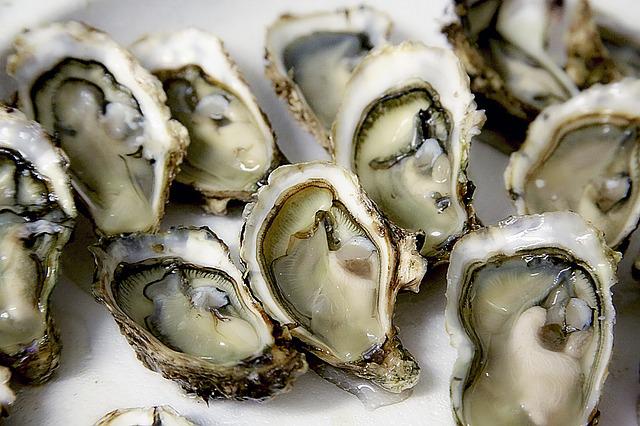By Lynda Kiernan-Stone, Global AgInvesting Media
People love their shellfish. No matter the region or culture, shellfish generally have a cache giving them a special place on menus and with home chefs as a premium item. This translates to high demand, especially as standards of living rise. However, they are delicate, prone to contamination, and have a shelf-life that can be as short as seven days, putting huge stress on supply chains. But as technologies advance, options expand.
Based in Raleigh, North Carolina, Pearlita Foods is the world’s first cell-based mollusk company making the first cultivated oyster meat. This one-of-a-kind company has attracted the backing of CULT Food Science Corp., an innovative investment platform with an exclusive focus on cellular agriculture technologies that provide sustainable, environmentally sound, and ethical solutions to global farming and aquaculture crises.
Pearlita stated that it also has received funding from Sustainable Food Ventures and Big Idea Ventures New Protein Fund.
Pearlita’s mission is to harvest the finest foods from the ocean and then revolutionize the way people eat the sea’s delicacies by leveraging ethical, clean, and sustainable methods. As such, the company aims to produce oysters with no reliance on the ocean or live animals by using stem cells and bioreactors for the production of cellular oysters that have a rich flavor and a substantial nutritional profile.
“We are so excited to have CULT part of our journey,” said Mikita Michelsen, CEO, Pearlita. “It is truly inspiring to be part of a portfolio filled with so many forward-thinking and passionate companies that believe in a future without reliance on live animals for human consumption and that are passionate about building a better [world] with biology. With this investment, Pearlita is one step closer to bringing healthy & nutritious oysters to the plates of seafood lovers.”
Oysters are one of the most expensive seafood products in the world, with oyster farming relying solely on the ocean. However, more than 85 percent of the world’s oyster reefs have been lost to a myriad of causes, and with ocean temperatures continuing to rise and waters increasingly being contaminated, the future of the industry hangs in the balance.
“We are pleased to have made an investment in Pearlita, especially alongside some of the world’s most forward-thinking funds in the cellular agriculture space,” said Lejjy Gafour, president of CULT.
“CULT wholeheartedly supports Pearlita’s mission and goals focused on cell-based seafood. We believe that the passion of the people at Pearlita will result in great strides being made in the cell-based seafood sector, particularly regarding fish and mollusks,” Gafour continued. “We are excited to not only continue allocating capital toward great ventures like Pearlita in the cellular agriculture market, but also to continue developing our own intellectual property and participate directly in the evolution of the industry.”
CULT has also recently exacted its mission on chocolate – another high-value food product that is beset with a range of challenges that are economic, environmental, and social.
The global chocolate industry is valued at more than $1 billion but it relies on cocoa farmers, who are predominantly smallholders in developing countries, to continue to produce at a rapid pace. As mentioned above, these farmers largely live below poverty levels, leading them to turn to children who labor for little or no compensation. The U.S. Department of Labor’s Bureau of International Labor Affairs estimates that 2 million children in Ghana and Ivory Coast are working in hazardous conditions in the country’s cocoa farms. In many cases, these children are taken from their families at young ages, forced to harvest cocoa for years without returning home – a practice that has only become more prevalent in countries like Ghana and Ivory Coast over the past 10 years, despite initiatives to stop it.
Furthermore, Theobroma cacao can only thrive in very specific conditions found within a 20-degree band on either side of the equator, and grown under monoculture conditions, leading to clear-cutting and complete deforestation for cocoa farms in very ecologically sensitive regions. This “slash-and-burn” approach in West African cultivation has resulted in production increasing four-fold since the 1960s, however, it’s been at the cost of 90 percent of the area’s original forests, with less than 4 percent of Ivory Coast remaining densely forested today.
In response, in February 2022, CULT backed California Cultured, a California-based startup focusing on manufacturing cocoa by cultivating select cocoa cells in tanks to produce cocoa powder, chocolate, and cocoa butter.
“CULT is proud to support such a revolutionary venture that is aiming to be a leading catalyst in changing the global food industry for the better,” said Gafour at the time.
– Lynda Kiernan-Stone is editor with GAI Media, and is managing editor and daily contributor for Global AgInvesting’s AgInvesting Weekly News and Agtech Intel News, as well as HighQuest Group’s Unconventional Ag. She can be reached at lkiernan-stone@
*The content put forth by Global AgInvesting News and its parent company HighQuest Partners is intended to be used and must be used for informational purposes only. All information or other material herein is not to be construed as legal, tax, investment, financial, or other advice. Global AgInvesting and HighQuest Partners are not a fiduciary in any manner, and the reader assumes the sole responsibility of evaluating the merits and risks associated with the use of any information or other content on this site.

